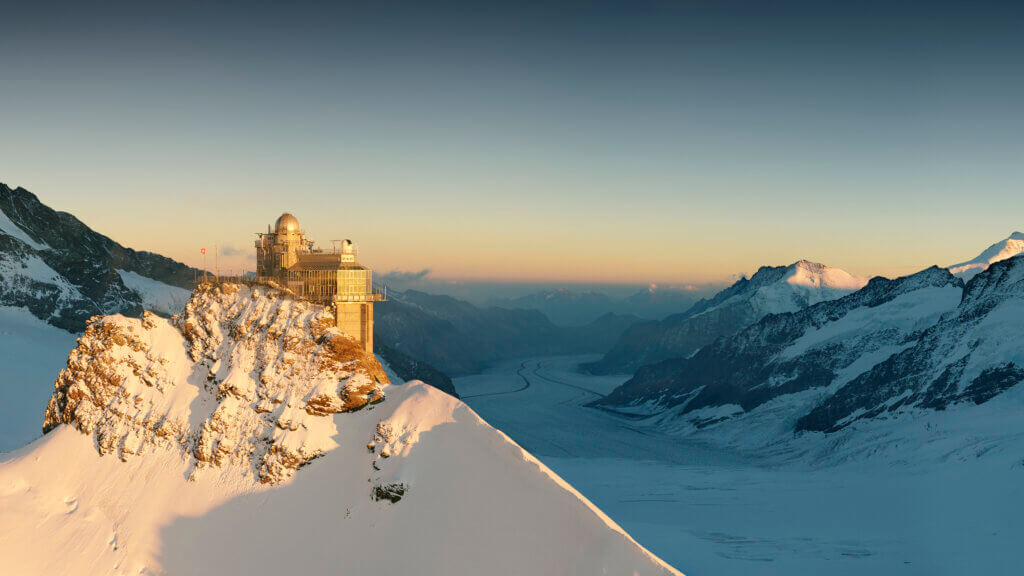
Customer balance is one of the highest principles for companies. Jungfrau Railways shows, how fatal the violation of this principle can be.
In September 2015, the singer G.E.M., “Get Everybody Moving,” who is particularly well-known in China, performed on the Jungfraujoch.
Arguably China’s most sought-after music star had the performance broadcast back home, and millions of fans even watched the Chinese pop-rock hits from the Aletsch Glacier on the Internet.
But these were not the only headlines about Jungfrau Railways attracting tourists from China.
Racking for Chinese
“Even mountains can become sisters,” was also the headline of the “Jungfrau Zeitung” when the Jungfraujoch entered into a partnership with the Unesco World Heritage Site Huangshan Mountain, a mountain massif in China.
“Jungfrau Railways has been actively working the China market since 1996 and pioneered the development of this travel market in the 1990s,” Urs Kessler, CEO Jungfrau Railways, told the local paper.
Jungfrau Railways even has its own representatives in China, it added.
Diversification necessary
But then came the coronavirus pandemic, showing companies that despite booming revenues with one customer group, it’s not always good to focus on just one segment.
Innkeepers from Lucerne to the Jungfraujoch suddenly realized that their business with the Chinese had completely disappeared and that they had paid far too little attention to local customers or guests from neighboring countries.
40 percent missing
Today, Wednesday, Jungfrau Railways also complained that they were still missing guests from China. Although about 625,000 guests visited the Jungfraujoch – Top of Europe in 2022, which was still about 71 percent more than in 2021.
But this was still about 40 percent fewer guests than before the coronavirus pandemic, it added.
No visas and no flights
Guest numbers from various markets in Asia and the U.S. also contributed to the strong increase in frequency last year, the company also said. However, the number of group travelers was still well below pre-crisis levels, it added.
The reason given for the shortfall was that there were still not enough international flight connections to Switzerland.
In the 2022 half-year report, the Jungfrau Railway had also written as a cause that the number of visitors was 57 percent below that of 2019, because there were bottlenecks in the issuance of visas.
But Chinese can travel only due to the relaxation of the state’s zero covid policy, from just a few days ago, and again travel in greater style.
The strong focus on tourists from the Middle Kingdom was therefore risky. In this respect, China is now taking its revenge directly on the Jungfraujoch.
Further setbacks
However, the Jungfrau Railway Group is convinced that its long-term strategy of focusing on international markets will pay off again, their statement added. The segment of individual guests is increasing, while a trend toward smaller groups can be observed in group travel.
However, business away from a China focus is also anything but robust in the 2022/2023 winter sports season.
Advance sales of the Top4 ski pass, i.e. the partner offer from Adelboden-Lenk, Gstaad, Jungfrau Ski Region and Meiringen-Hasliberg, were down almost 10 percent on the 2021/2022 winter season – at around 33,000. This was due to ‘price increases’ he said.
Strong Swiss franc limits
And from the start of the season to December 31, 2022, the Jungfrau Ski Region registered almost 16 percent fewer skier visits compared to the same period a year ago.
Again, diversification may eventually do good. But with price increases as well as the strength of the franc it may be difficult to attract, say, international audiences that don’t come from Asia.
Baschi, Hänni and Egli
According to the 2022 half-year report, Jungfrau Railways went from a loss of 10 million Swiss francs to a profit of 15 million Swiss francs. Thanks to the increasing income from traffic, souvenir stores, gastronomy and accommodation and even from the sale of energy.
But perhaps instead of Chinese superstars, in the future more Swiss cult musicians, such as Baschi from the canton of Basel-Landschaft, Luca Hänni from the canton of Bern or even Beatrice Egli from the canton of Schwyz, should yodel their ditties high from the Aletsch Glacier to lure customers from down in the valleys.
04.01.2023/kut./ena.




